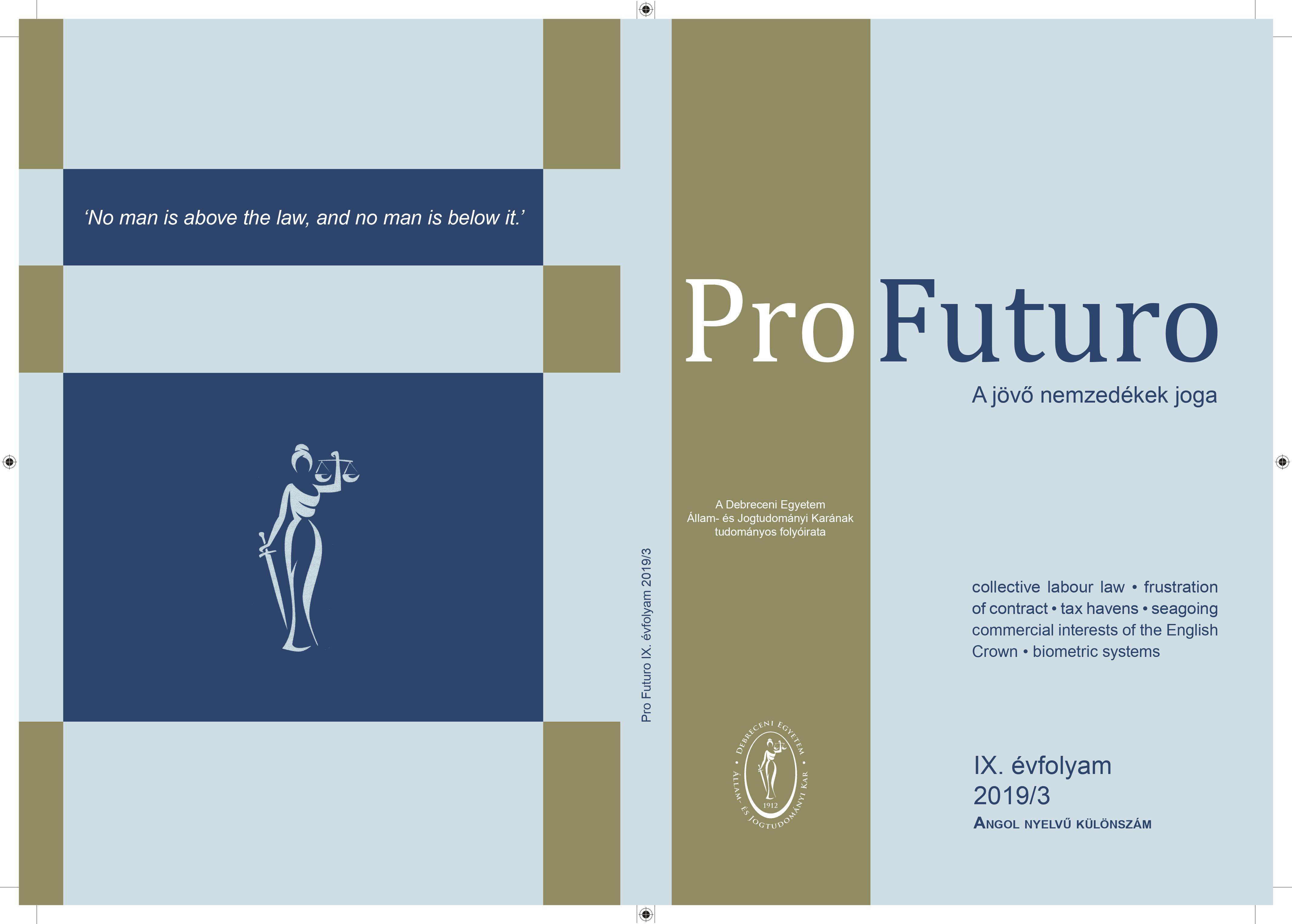The right to take collective action in EU law based on the European Pillar of Social Rights and the recent case law of the CJEU
Szerző
Megtekintés
Kulcsszavak
Licenc
Copyright (c) 2020 Pro Futuro

This work is licensed under a Creative Commons Attribution-ShareAlike 4.0 International License.
Hogyan hivatkozzuk
Absztrakt
Jelen tanulmány a kollektív fellépéshez és megállapodáshoz való alapvető munkavállalói jog köré épül. E jogosultság szilárdan beágyazott ugyan a munkajogi szabályozások többségében, de az Európi Unió szociálpolitikájának (munkajogi szabályainak) köszönhetően önállóan, sajátos jelentéstartalommal is vizsgálatra érdemes. Akár alapjogi, akár alapszerződési, akár irányelvi oldalról közelítünk e jog felé, annak tartalma és gyakorlati hatékonysága számos nehezen megítélhető kérdésre mutat, ezeket pedig a szociális természetű jogvédelem iránti igény és a gazdasági alapszabadságok szükségszerű kollíziója katalizálja. Kutatásom során e jog – kiegészítve néhány további, kapcsolódó kollektív munkavállalói jogosultsággal – vizsgálatát az Európai Unió Bíróságának újabb ítélkezési gyakorlata, illetőleg a Szociális Jogok Európai Pillére jelentette átfogó szociálpolitikai reform segítségül hívásával elemzem.
This paper is built around the workers’ fundamental right to take collective action and collective bargaining. Although, this right is firmly embedded in the majority of labour law systems in the social policy (meaning labour law, too) of the European Union, it is worth analysing it separately with an independent meaning. We can approach this right from the fundamental rights, the fundamental treaties or from certain directives, so we can find several questions that are difficult to answer properly. These problems are mostly catalysed by the necessary collision between the need for socially motivated legal protection and the fundamental economic freedoms. In my research, I analyse this right – along with some other connected ones – with the help of the recent case law of the Court of Justice of the European Union and the European Pillar of Social Rights because the latter highlights the holistic approach in the current reforms of EU social policy.


 https://doi.org/10.26521/Profuturo/2019/3/5770
https://doi.org/10.26521/Profuturo/2019/3/5770